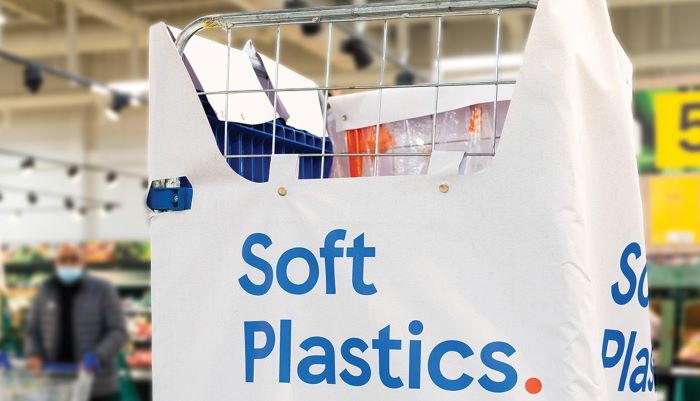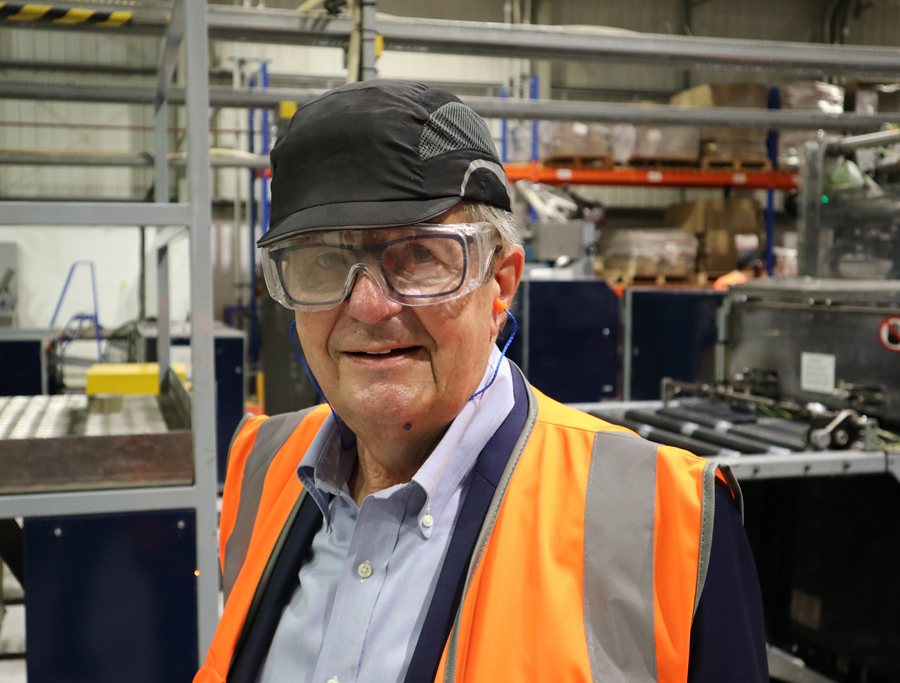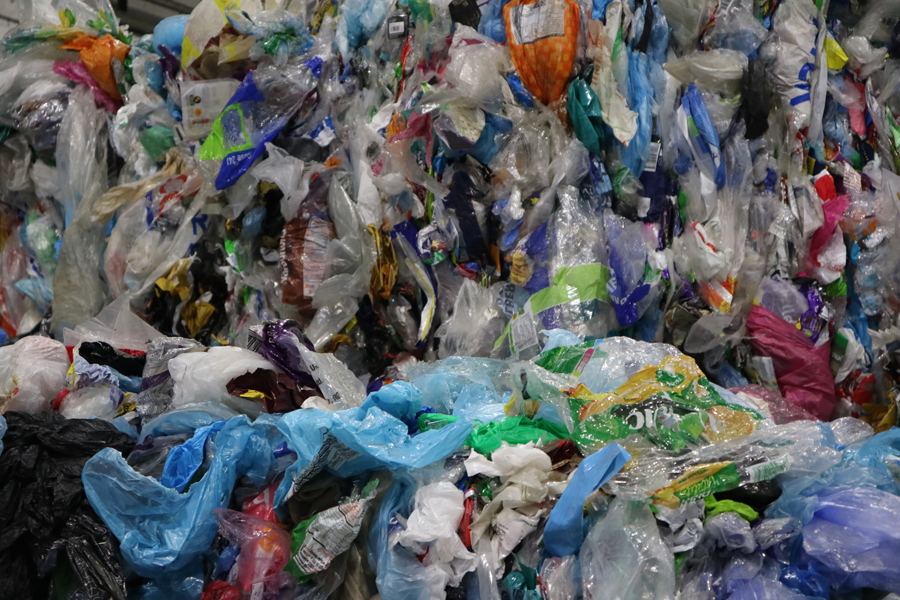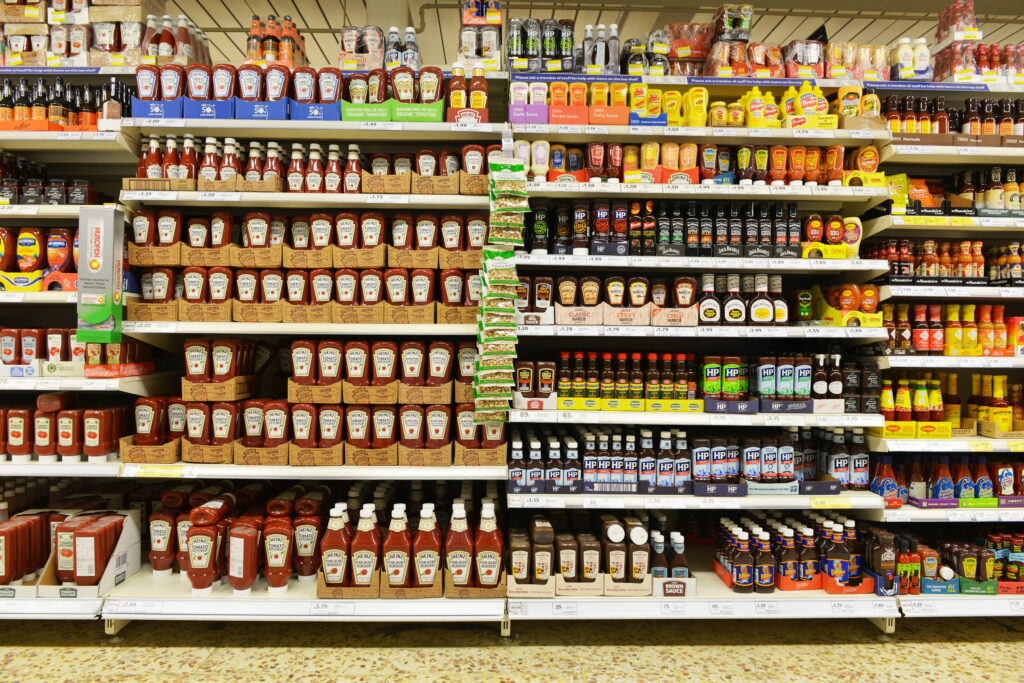Berry is one of the longest established plastics recycling businesses in the UK having incorporated British Polythene Industries (BPI) into its activities.
Originally experts in the recycling of post use industrial films and silage films from farms, BPI developed its recycling and film work further and after various transactions became part of Berry.
Berry Global is the American parent company and is an international business which says that it serves some of the largest brands in the world, operating with a “local delivery model” which it believes offers better service and solutions for customers and communities in which it operates.
And, sustainability is very much key to all Berry’s operations which the company measures against its own Impact 2025 sustainability strategy. It produces different recycled polymers, with the highest quality including Berry’s range of ‘Sustane’ recycled polymers. The ‘Sustane’ range of recyclate is used to manufacture LDPE shrink films, stretch films and sacks for industrial applications at Berry factories located in the UK and mainland Europe.
This, explains Berry, is ideal for a wide variety of applications, helping companies to improve the environmental profile of their products.
In the UK, particularly topical at present is the growing interest in the recycling of plastic film, and Berry has a strong presence in this market.
To recycle front of store and collected films from households and films from back of store needs various processes, primarily washing, shredding and pelletisation.
Wash plants
Berry has three wash plants: Dumfries in Scotland, Rhymney in Wales and Heanor in Derbyshire. Dumfries and Rhymney are conventional wash plants taking in quite dirty and dusty material, from farms and (post-use) industrial, retail and commercial businesses. The material collected is shredded and recycled pellets produced from it to make products including building films, black bin liners and sacks.
Berry’s plastics recycling plant in Heanor, Derbyshire specialises in taking in both back of store film from retailers and warehouses and increasingly, volumes of front of store film and is one of relatively few businesses able to recycle such material. It also produces a finished product in the form of black sacks and other colours of sacks, such as yellow and orange for medical waste.
Heanor
The Berry Heanor facility has the capacity to recycle 20,000 tonnes of used plastic packaging every year. The company explains that it features the first wash line and recycling facility in the UK that is able to recycle both flexible and rigid plastics from household and industrial waste.
Utilising an advanced purification process, the plant, says Berry, “produces high quality and consistent recyclate that can be used in a variety of industrial and consumer rigid and flexible applications such as storage boxes, refuse sacks and collation shrink films”.
Mike Baxter, external affairs director, Berry Global Flexible Films UK, says that reprocessing back of store material – which is usually of consistent materials from sources such as supermarkets and warehouses – is relatively straightforward, even if it does have contaminants including paper labels and non ldpe films including PET.
However, front of store – where the public take film back – usually has more contaminants which need to be washed out. These can include retained organics such as bits of food and, for example, grease such as can be found on the inside of an empty frozen chips bag. Berry works with a number of retail customers including Tesco from which it receives both front of store and back of store film.
Tesco
Tesco has rapidly scaled up the amount of film – or what it terms ‘soft plastic’ – collection points and now collects the plastic from customers for recycling in over 900 stores. Earlier this year it said it had already collected 850 tonnes of soft plastic and is working with partners of several recycling solutions. The collected material received at the Berry Heanor recycling factory includes bread bags, fruit, vegetable and salad packaging, frozen food packaging and carrier bags.

Front of store pet food pouches and crisp packets are the most difficult material to deal with in the process but all these go into the mix too as does some back of store material which is either heavily coloured or contaminated. One solution might be to ban these materials from front of store collections but Mike reasons that this simply wouldn’t work and would also send the wrong signal to consumers. Currently, these types of packaging, which also includes metalised films, sweets and biscuit wrappers, are extracted in a pre-sort operation prior to recycling.
Because of the extra contamination, the washing and sorting process for front of store is more costly, explains Mr Baxter, and can be a slower process.
He considers that with the government’s ambition to collect flexible films from households, while front of store routes are being developed now, in the future the starting point has to be one of more advanced sortation to cope with when kerbside collections are introduced from 2027 for all councils. “This will be a big area for investment and the material will need to be sorted in an advanced MRF where it is not separated at the kerbside,” he argues.
Plastic Pact targets
And, the number of plants needed will have to increase dramatically, says Mr Baxter. “We need EPR to meet the WRAP Plastic Pact targets and overall will need around 20 plants at 20,000 tonnes a year. Yes, we have got to find end markets for that material but I believe the markets are there.”
Turning to the process at Heanor, he explains: “Front of store material is mostly coloured film – can we recycle it? OK, yes, but it always produces a black or dark brown pellet so is only really suitable for refuse sacks, or industrial films.”
Front of store material is mostly coloured film
Deinking of pellet material can be carried out to produce a lighter pellet, but this is an expensive process and so in reality makes the use of the coloured film unsuitable for lighter products, he explains.
The process at Heanor is complex and uses 100% recycled material as the input feedstock. The bales of film go into a bale breaker and then the material goes through a shredder and Lindner grinder to reduce size. Contamination is taken out at a first stage separator using water followed by a series of centrifuges and shredders to clean the material.
“We are taking off any non-target material,” says Mr Baxter. “Once we have done this, the cleaned flake is dried prior to the next stage in the recycling process.”
Heated
The washed and dried flake then enters an Erema line, the largest of its type in the world according to Erema. Dried flake goes up a conveyor to another shredder is then heated.
Two laser filters are used to help reduce more contaminants such as waste paper, especially from front of store material. The plastic flakes eventually come out of the process as a useable LDPE pellet.
The recycled pellet from back of store material is dried and placed into silos. On site the front of store darker pellets are then extruded to make a layer of film for use in black polythene sacks and similar materials. This is a three-layer process as using the recycled film on its own would not make a sufficiently strong bag.
Instead, an ABA type of construction is used with the front of store material forming the B layer. The two A layers at Heanor are made from 100% recycled farm plastic.

Mr Baxter explains: “The front of store goes into the middle because you can’t extrude the front of store pellets as monofilm at 23 microns which is what is needed for heavy duty refuse sacks: front of store is still a challenge with its myriad of different polymers.”
In addition to the ongoing Tesco Front of Store recycling and re-manufacturing contract, Berry has also carried out a recycling project, in conjunction with Nestlé. Berry has recycled used packaging which was collected at kerbside from households in Cambridgeshire.
The plastic films had a pre-sort at Amey’s Waterbeach MRF near Cambridge. The film was recycled at Berry’s Heanor wash and recycling factory. The recyclate was then extruded into collation shrink film at its Bromborough film blowing factory and subsequently used to wrap jars of Nestle Coffee-Mate.
Looking ahead, Mr Baxter is following developments closely in terms of government policy towards plastic film. Berry’s experience at Heanor, he says, puts it in a good position when it comes to plans to expand the recycling of used film from households.










Subscribe for free